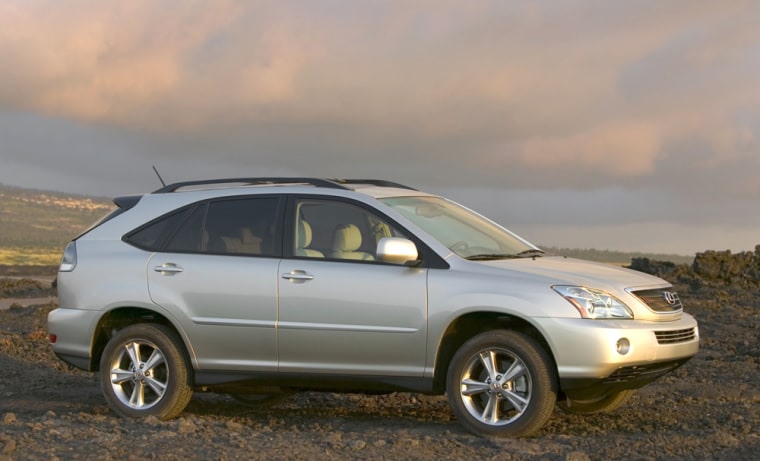A day after Canada announced an agreement with automakers to cut emissions of gases that many scientists tie to global warming, U.S. environmentalists were saying it's only a matter of time before the same happens in the United States.
"This agreement is a breakthrough because it will both cut global warming emissions in Canada, and set the stage for similar reductions in the United States," Dan Becker, Washington director of the Sierra Club's global warming program, said in a statement.
Under the voluntary deal, the automakers will reduce emissions by 25 percent from 1995 levels by 2010, Natural Resources Minister John Efford told Parliament Wednesday.
A spokesman for the three automakers involved — General Motors, Ford and DaimlerChrysler — confirmed a deal had been reached but gave no details.
"We have a balanced voluntary agreement that I think will help the government achieve its climate change goals and reduce GHG (greenhouse gas) emissions," said Mark Nantais, spokesman for the Canadian Vehicle Manufacturers Association.
Cutting car emissions is one way Canada hopes to meet its targets under the Kyoto protocol on climate change, which obliges Ottawa to cut the output of so-called greenhouse gases by 6 percent from 1990 levels by 2012.
Canada’s overall emissions are, in fact, about 20 percent above 1990 levels and government officials say the country has no chance of meeting its Kyoto goals.
Environment minister used pressure
By favoring a voluntary deal, Efford took a softer line than Canada's environment minister, Stephane Dion, who at one point threatened to impose binding limits on the car makers.
Dion said he was happy the deal would encourage the industry to produce more energy efficient vehicles and compete with Japanese companies Toyota and Honda, which lead in gas-electric hybrids.
“It’s very good for the environment and very good for the economy ... They (the firms) have a commitment to deliver and they will,” Dion told reporters.
John Bennett, a Sierra Club spokesman, said Dion's pressure had worked. “To get them to come to the table and offer to make a deal was a huge accomplishment and that accomplishment is largely Mr. Dion’s ... by having the guts to threaten them he actually moved this along,” Bennett said.
The Globe and Mail newspaper quoted sources close to the talks as saying the car makers would cut emissions by developing and deploying new fuel-efficient technologies, and by improving air conditioning systems. In addition, they reportedly will launch efforts to encourage Canadians to buy fuel-efficient vehicles.
California and Canada
Some opposition lawmakers, however, said the deal doesn't go far enough, noting that the proposed emissions cuts are only voluntary and comparing them to a California law passed last year requiring automakers to phase-in vehicles that reduce greenhouse gas emissions by 25 percent. Automakers have sued to overturn that law.
"We believe that mandatory emissions reduction standards such as they have in California is what Canada should have done," said New Democrat Leader Jack Layton.
But the Sierra Club's Becker said Canada's deal was similar to California's and includes a backup.
"To ensure that the auto companies comply with their commitment, the Canadian government is changing its environmental protection laws to create a regulatory backstop," he noted. "Canada will be able to legally enforce the pact if the automakers fail to live up to their promises."
Becker added that besides California, seven eastern states are adopting laws to reduce greenhouse gases.
"With the addition of Canada, one-third of the North American auto market will have to meet California’s tougher emissions rules," he said. "The automakers will find it financially impossible to make one clean set of cars for eight states and Canada, and a dirty set for the rest. Eight plus one equals 50 (states)."
